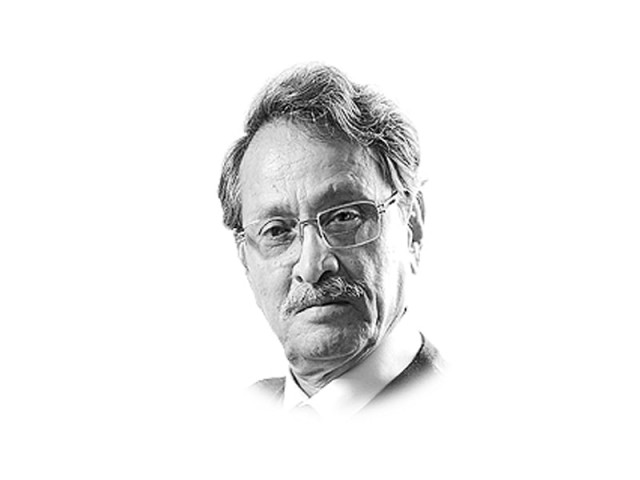The power of journalism and the interpretive theory
Sometimes, single-handedly, our well-meaning journalists can misrepresent reality.

The writer is Senior Fellow Entrepreneurship at Lahore School of Economics. He is also chairman of the International Conference on Schumpeterian Entrepreneurship and the author of the book Leading Social Entrepreneurs of Pakistan; the Unsung Heroes
The simple assessment of this phenomenon is that there is no understanding of curriculum design and the significance of a committee constituted for the purpose. In all fairness to the committee, the likelihood is that it comprised experts and specialists from the field of education. The second observation that should be made clear is that the book was meant to teach the subject of Urdu.
Therefore, the objective of this textbook would be to teach Urdu as a language and hence, it should have been judged from this perspective; i.e., whether it was fulfilling the objectives laid down. This could only have been done if the committee were called upon to answer the allegation made by one individual from the field of journalism. No individual should have the prerogative to change a decision taken by a committee.
On the other side of this phenomenon is the intervention by Pervez Hoodbhoy. He goes deep into the matter and after an evaluation of both books, comes up with the finding that Mr Abbasi was not entirely truthful in the statements he made. The revised book contained the picture of Allama Iqbal, and also included “Hamd-o-Nat” by Ehsan Danish, a poem by Hafeez Jullandhari, as well as letters of Ghalib. This manifests it as a perfect book for teaching Urdu as a subject for matriculation students. Hoodbhoy establishes that there was no proper investigation and that the importance of the curriculum committee was undermined and that the narrow-mindedness or “narrow prism” of thinking by some individuals was destroying the fabric of this society.
These episodes have constructed the phenomenology that we are experiencing. As we have seen, we are beset by a culture that bases itself on arm-twisting. Mr Abbasi has been gloating because, as a journalist, he has brought the might of a government to its knees and forced it to withdraw its step. He had challenged the writ of the government. We are either hounded by the phenomenon of “Islam-in-danger” or by the “thana culture” prevailing in our lives. We have time and again seen how a wrong is made to look like the pure, objective truth. We can see the thana culture but accept it and learn to bear its excesses. The interpretive view suggests that we create “objectivity” through a social process of acceptance. This precipitates injustice upon us. We go for appearances of objectivity and don’t let our minds question this. It is a social phenomenon — an aspect of “phenomenology” as it teaches us a social action. This adaptation is not from something that has been taught to us, but it is through the virtue of the fact that we also learn at an unconscious level without really being taught. However, all description of actions must contain an interpretive element. Actions by individuals always embody the interpretation of the actor. In this case, it is pertinent to ask what meaning Mr Abbasi is attaching to his action. He seems to understand the social context of the society that we live in. We have a passive acceptance of all actions, even wrong ones. Public actions need to be questioned. Mr Hoodbhoy has shown moral courage. If he had not done this, the silent majority would have considered Mr Abbasi a hero and that, too, a mistaken one.
Interpretation of reality was modified and changed by transforming the meaning and action of a well-intentioned committee. Sometimes, single-handedly, our well-meaning journalists can misrepresent reality. That is the time to react and harness such unbridled media power. Media represents the consciousness of a society and it must be balanced and wise, hence willing to rein in when it is in the interest of society.
In fact, we do not have a social framework of civic responsibility. Such a framework could help us understand the concept that we seek to interpret. The work of the interpretive researcher is complete only when it has satisfied the social criteria in a particular field. In this case, we have seen how it was exploited and how it was taken up as a moral challenge, which explained the interpretive criteria. Journalists have been known to adopt the interpretive theory. They interpret and pass judgment, and we do not verify. However, the wisdom would be to see that our actions are an expression of informed and enlightened choices. These are, therefore, wisdom based and knowledge based for the betterment of society and are not carried out under any compulsion. We are a conscious society after all.
Published in The Express Tribune, April 23rd, 2013.















COMMENTS
Comments are moderated and generally will be posted if they are on-topic and not abusive.
For more information, please see our Comments FAQ